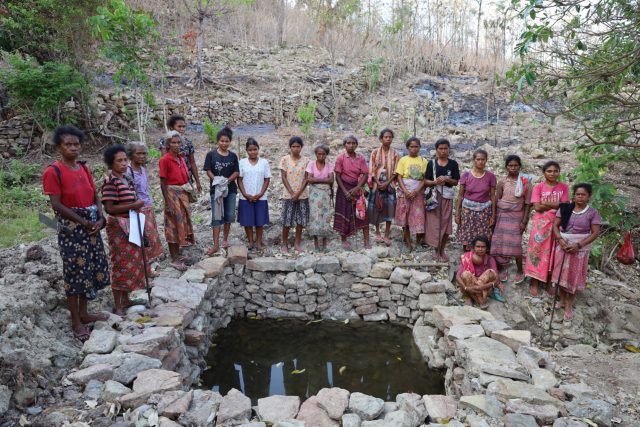Author: Esther Nanjovu – Oxfam in Timor Leste
In the world of development and social change, impact is often reduced to numbers—how many people reached, how much funding disbursed, how many activities completed. While these figures offer a snapshot of scale, they rarely capture the full story. True impact unfolds over time. It’s reflected in lasting shifts in power, resilience, equity, and opportunity. It’s not just about what was delivered—it’s about what endures, transforms, and empowers long after the project or program ends.
Impact is not something we ‘impose’—it’s something we uncover. And when we center communities and listen deeply, we gain a more authentic understanding of what meaningful change truly looks like. We mitigate the risk of overlooking the lived experiences, cultural context, and aspirations of the people most affected.
The Limits of Traditional Metrics: Quantitative metrics have long shaped how impact is assessed. They offer clarity, consistency, and comparability—but often at the cost of nuance. When success is defined by simplified criteria, it can incentivize short-term wins but fail to build long-term resilience. Even more concerning, when data is extracted without meaningful dialogue, communities risk being treated as passive subjects rather than active partners in change. To truly measure what matters, we must move beyond numbers and toward approaches that honor complexity, context, and lived experience.
This article explores how shifting from top-down evaluation to community-centered listening reshapes not only how we measure impact, but how we define it.
As Dr. Erin McFee of the London School of Economics notes, interventions often unintentionally undermine their own goals when they prioritize performative compliance over genuine trust-building[1].
Listening as a Tool for Transformation: Listening is more than a courtesy—it’s a methodology. When communities are invited to define success, the outcomes shift dramatically. Listening means:
• Co-creating evaluation frameworks with local stakeholders.
• Valuing stories and lived experience as legitimate data.
• Recognizing power dynamics and redistributing decision-making authority.
Communities must move beyond being consulted—they should be empowered to lead telling the story of what impact means to them. When local actors are actively engaged in shaping and interpreting data, the result is deeper insight and more authentic narratives of impact.
Toward a New Paradigm: To truly center people in impact measurement, organizations must embrace a paradigm shift:
• From extraction to co-creation: Data should be gathered with communities, not from them.
• From metrics to meaning: Numbers matter, but they must be contextualized by human experience.
• From control to collaboration: Communities must have agency in defining, measuring, and interpreting impact.
This shift requires humility, patience, and a willingness to embrace complexity. However the potential reward is profound: impact that is not only measurable, but meaningful.
In the end, the most powerful metric may be the act of listening itself. When communities are heard, their insights shape more relevant programs, their voices guide more ethical decisions, and their stories illuminate paths that data alone cannot reveal. Measuring impact is important. But centering people—truly listening to them—is what makes that impact real.
‘Impact is not what we count—it is what we carry forward, together.’ Esther Nanjovu – Oxfam in Timor Leste.
Other resources
A Beginner’s Guide to Impact Measurement – Social Good Stuff
[1] https://www.lse.ac.uk/geography-and-environment/people/academic-staff/erin-mcfee











